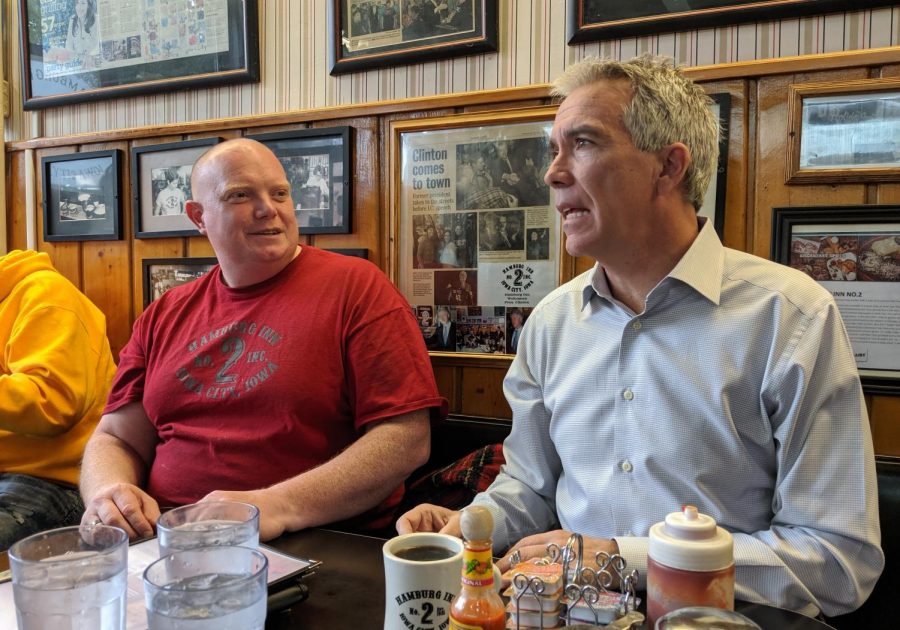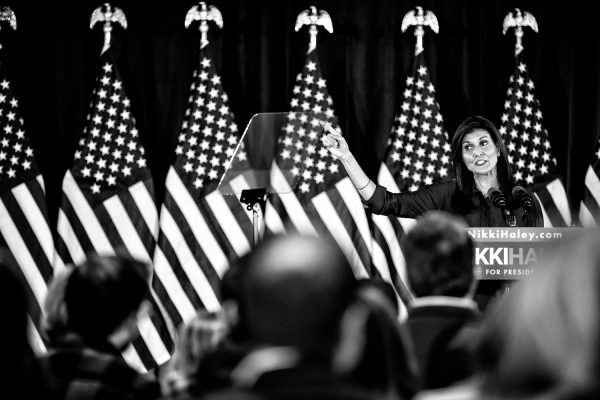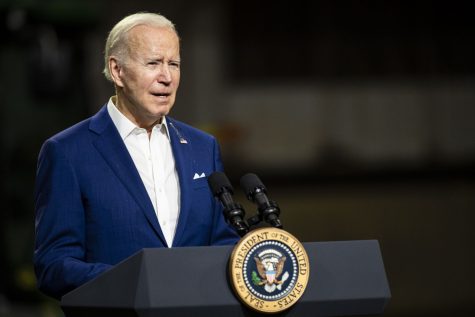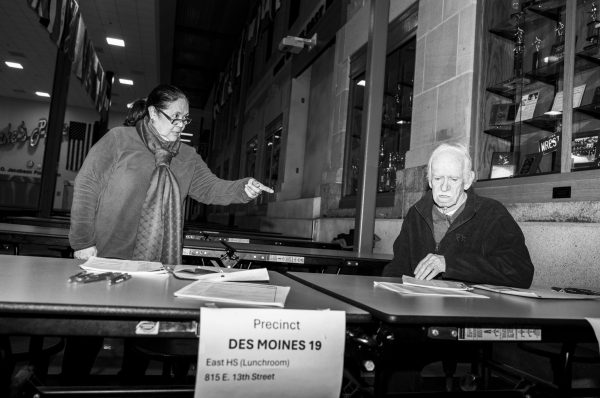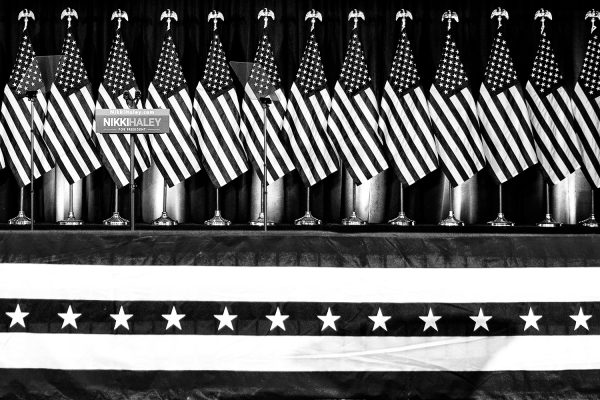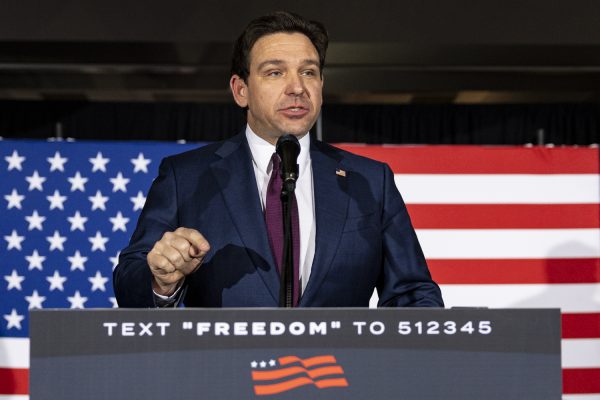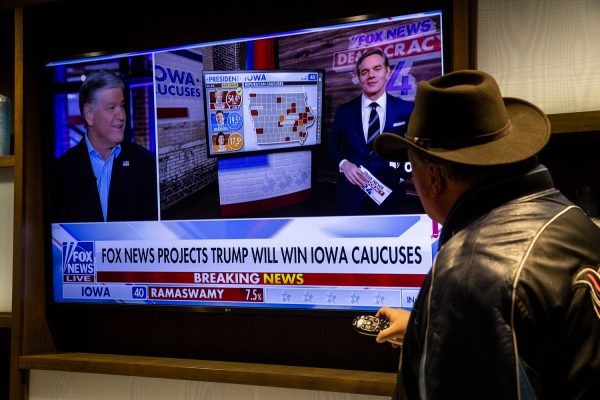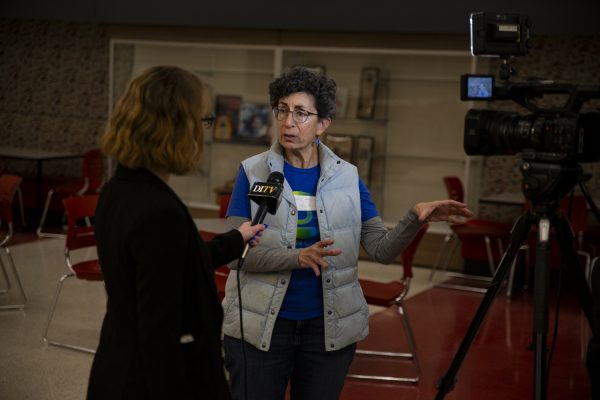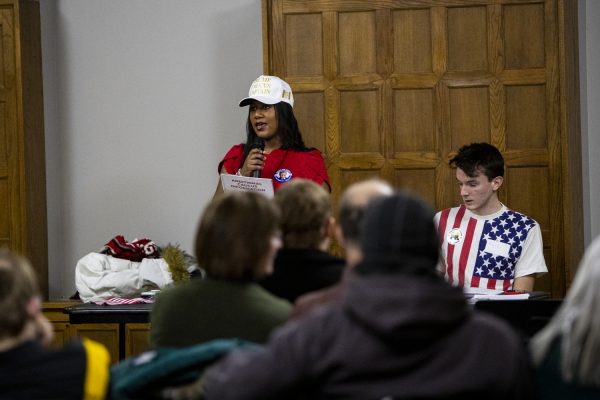UI grad and presidential hopeful Joe Walsh returns to Iowa City for homecoming
Homecoming drew Hawkeye fans, alumni, and a Republican presidential hopeful who also happens to also have been a UI student.
October 19, 2019
University of Iowa alumnus Joe Walsh returned to his alma mater over the weekend as a long-shot presidential hopeful.
Sitting down in Hamburg Inn No. 2, Walsh and his wife had driven four hours from their home in Illinois to do some retail politicking in various restaurants downtown on Saturday.
Walsh, a former U.S. representative from Illinois, is challenging President Donald Trump for the Republican Party’s presidential nomination, centering his campaign around his belief that the president is “unfit” for the job.
Despite a handful of states canceling their Republican primaries and caucuses in solidarity with President Trump, including early primary states such as Nevada and South Carolina, Iowa Republicans decided to keep their first-in-the-nation caucus on the primary calendar.
Because of that, Walsh said he’ll be spending more time in Iowa, New Hampshire, and many of the Super Tuesday states campaigning.
“We’re trying to get here every week,” Walsh said, referring to Iowa. “And when we knew it was homecoming, we thought this would be great. We can shake a lot of hands, see a lot of people.”
Walsh spent his first two years at Grinnell College and graduated from the University of Iowa with an English degree in 1985.
Though according to polling and Iowa party leaders, support for Trump is still steadfast among the Hawkeye State’s Republican voters.
Walsh said he thought although Republicans support the president publicly, many were frustrated with the president’s rhetoric toward immigrants and raising the federal deficit. He added he’s trying to harness that by offering himself as a politician who may fit Republicans’ conservative views while approaching the presidency more traditionally.
The crux of a challenge against a sitting president is resources. Walsh has raised $234,991.50 since announcing his presidential run in August according to the October fundraising reports from the Federal Elections Commission. President Trump, on the other hand, has raised $165 million since 2017. Walsh said he has an eight-person staff, and currently no campaign headquarters.
Walsh acknowledged his lack of campaign resources, saying that if he doesn’t surpass the president, he wants to win a large enough share of the vote to make a statement.
“I think he’s (President Trump) unfit and he’s a danger to this country. He’s a horrible human being. If I can’t beat him, I just think it’s so important … that that message be on record,” he said.
Walsh said he voted for Trump in 2016, but that he “regretted” that vote, and he wouldn’t be supporting President Trump if he became the nominee.
“If I help Trump lose in November, I’m fine with that because I think he’s unfit. And he’s a danger. Like, I don’t think Elizabeth Warren’s a danger to America. I just disagree with her on some policies,” he said, adding that he wasn’t sure if he’d support a Democrat in the general election.
As far as policy goes, Walsh said his main concern is with the federal debt. In August, the Congressional Budget Office released information that the federal deficit — how much more money the government spends than takes in — is on track to rise to $1 trillion in fiscal 2020.
He also supports immigration reform, saying he believes the government should do more to prevent people from entering the country illegally, but not demonize immigrants, like he said President Trump has done.
As The Daily Iowan previously reported, Gerald Ford, Jimmy Carter, and George H.W. Bush all had challengers that won a significant amount of the popular vote in the primaries as incumbents.
But, University of Iowa political science Associate Professor Timothy Hagle said in September that those challenges were generally tied to a poor economy, a grievance that people could vote against the president for.



